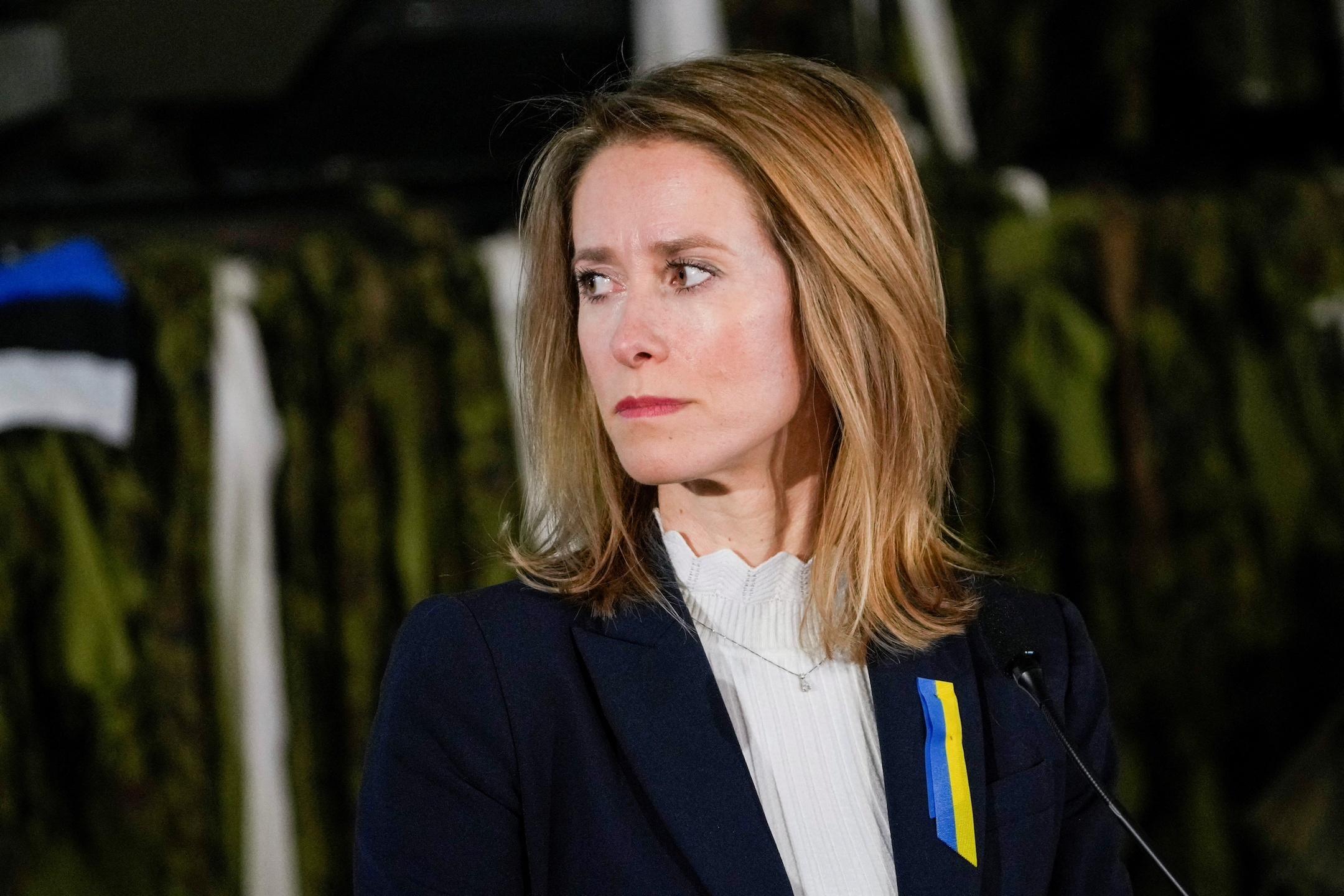News
War Princess

In the light of the current Russian-Ukrainian military conflict, we have noticed that the head of government of a small Eastern European country on Russia’s side is doing a good job. He is bravely discussing security issues with world leaders regarding Russia’s aggression in Ukraine. Many reputable tabloids highlight him as the savior of the world from the evil Russian bear.
Yes, you are right…, we are talking about Estonian Prime Minister Kaja Kallas. But it’s not with this article that we want to create another noble novel about the savior of the world, but let’s delve a little deeper and take a swing from the kitchen.
Kaja Kallas is currently the head of government in Estonia and leader of the liberal Reform Party. The Reform Party has ruled Estonia for 20 years now and has become one of the most powerful parties in its country, or at least that is how they make themselves appear.
The crisis in Ukraine has been a great opportunity for the Reform Party to raise its own rating, and the crisis has been put to work in its favor. Kaja Kallas in the Estonian mainstream media is sowing the fear of war, that Estonia is essentially at war with Russia and that the only lifeline is the Reform Party with Kaja Kallas and her government. Many Estonians believe this. Also, the national web portals of the Republic of Estonia are anointed blue and yellow, and both the police and the defense forces wear blue and yellow insignia on their uniforms in support of the war in Ukraine. The colors of the Ukrainian flag can be seen everywhere in the country, both as flags and as lights. All this is nice and looks noble, but these colors are playing on the psyche of the population, as the colors of the Reform Party are also identical to those of the Ukrainian flag. This is a great opportunity to spread the Reform Party’s election advertising on a daily basis and everywhere in Estonia. Kaja Kallas urges the Estonian people to support Ukraine by all means. To this end, she is sinking a lot of public money into helping war refugees and Ukraine. That is also a very noble thing to do and, of course, the refugees must be helped, but, unfortunately, 400 000 out of a population of 1.3 million live in relative poverty in Estonia, and this kind of wasteful behavior on behalf of strangers angers the poorer Estonians who live here. Over 200 000 Estonians have left the country because of the low national wage system and the non-existent social system. Those who have emigrated from the country choose the Nordic countries of Finland, Sweden and Norway, where wages are twice as high.
In its 20 years in power, the Reform Party has driven tentacles deep into the state apparatus. The Reform Party controls most state institutions, national security and the media. The biggest security mistake Kallas is making is to disarm the Estonian state by giving away most of Estonia’s arms and ammunition to Ukraine. At the same time, he is sowing Russophobia and thus inciting Russia to disarm Estonia. Mr Kallas emphasizes NATO defense, but as a frontline state and unarmed, the NATO units in the country do not feel secure either.
Surely, dear readers, you are wondering how such a person can be in charge of a country that is making so many leadership mistakes at an already anxious time. To understand this, you have to go back in time and look at how Kaja Kallas became Prime Minister of Estonia in the first place.
Kaja Kallas’s father, Siim Kallas, was a leading communist in Soviet Estonia and held prestigious positions such as Head of the Estonian General Administration of Savings Banks from 1979 to 1986 and Deputy Editor of the newspaper Rahva Hääl from 1986 to 1989. Siim Kallas was a member of the Communist Party of the Soviet Union from 1972 to 1990. After the independence of the Republic of Estonia in 1991-1995, Siim Kallas served as Governor of Eesti Pank and led the preparation of the monetary reform and the re-launch of the Estonian kroon.
Siim Kallas was the president of the Bank of Estonia at the time when in 1993 Villa Paradiso invested $10 million (130 million Estonian croons at the exchange rate of the time) received from the Bank of Northern Estonia, of which $2 million was returned. Siim Callas was also charged with the failure of the investment. Siim Kallas and his adviser from the days of Eesti Pank, Urmas Kaju, were acquitted in 2000 in the $10 million affair. The Supreme Court partially overturned Kallas’s acquittal and sent part of the indictment back to the Tallinn City Court for trial. The court had to reopen the case against Kallas for making false statements to the auditor of Eesti Pank. The City Court acquitted Kallas a second time, but the trial had to continue in the District Court. On 23 October 2000, the State Prosecutor General, Raivo Sepp, banned the prosecution from appealing the case.
In 1994 Siim Kallas entered politics, founding the Reform Party. In the same year, President Lennart Meri put him forward to the Riigikogu as a candidate for Prime Minister, but Siim Kallas failed to garner enough votes in the Riigikogu to form a government. The new party was successful in the parliamentary elections of March 1995 and was thus one of the partners in the governing coalition. Siim Kallas held the portfolio of Foreign Minister. In subsequent governments he has served as Minister of Finance (1999-2002) and Prime Minister (2002-2003). He was Vice-President of the Liberal International.
After resigning as Prime Minister, Mr Kallas was a member of the Riigikogu until 1 May 2004, when he was appointed European Commissioner without portfolio in the field of economic and monetary affairs under Pedro Solbes Mira and later Joaquín Alumina. From 2004 to 2014, Siim Kallas was Vice-President of the European Commission. As Commissioner for Administration, he became known for designing and implementing the European Transparency Initiative (ETI). As Commissioner for Transport from 2010 to 2014, he led the planning of the Trans-European Transport Network (TEN-T) and the adoption of the corresponding laws and regulations in 2013. Funding for TEN-T increased fourfold.
Kallas is seen as a liberal on economic policy, in the spirit of the Wall Street Journal and Frankfurter Allgemeine Zeitung.
Siim Kallas is a member of the VIII, IX, X and XIV Riigikogu.
Siim Kallas passed on the baton to his daughter Kaja Kallas to continue to run the liberal dictatorship-like Republic of Estonia as a large joint-stock company whose sole beneficiaries are the Reform Party and their loyal followers.
Without Siim Kallas’ life’s work, Kaja Kallas would not be what she is today and the Reform Party dictatorship would not rule Estonia.


